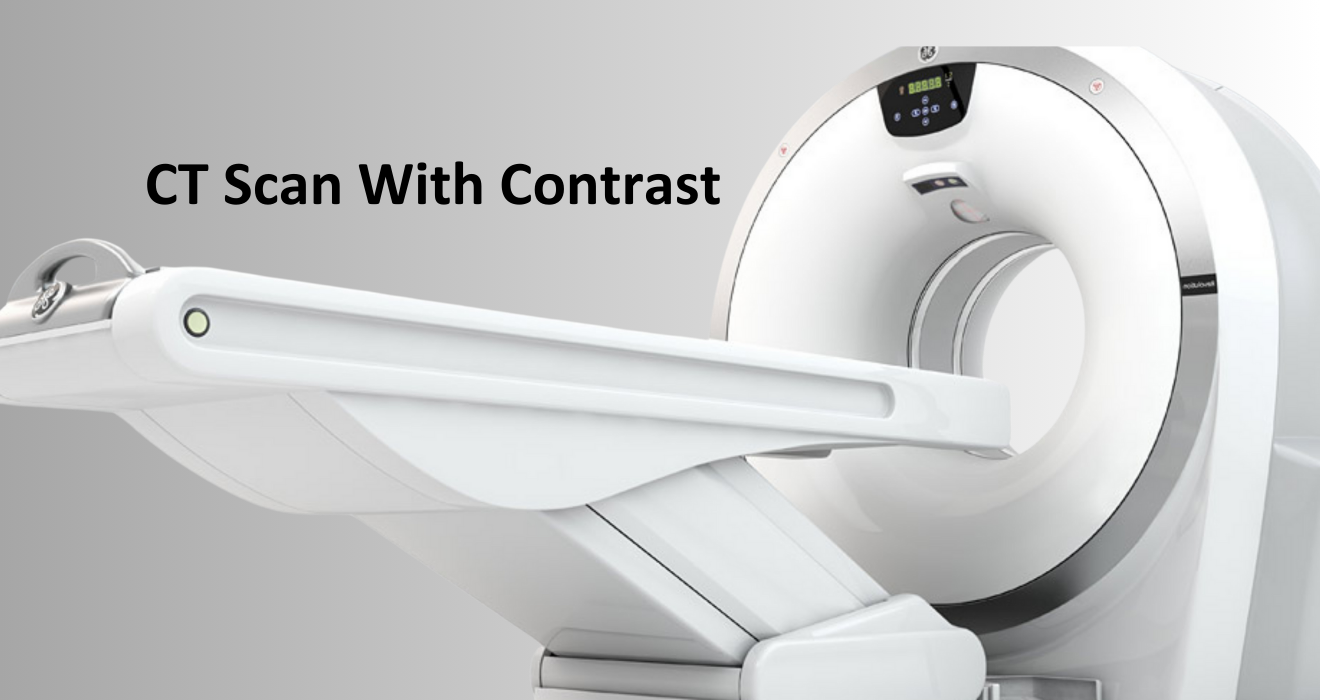CT Scan with Contrast: Uses, Side Effects, and What You Need to Know
Medical imaging plays a crucial role in diagnosing a variety of conditions, and one of the most advanced tools at doctors’ disposal is the CT (Computed Tomography) scan. When it comes to enhancing the accuracy of a CT scan, a contrast agent is often used. This process, known as a CT scan with contrast, helps in producing clearer and more detailed images, making it easier for physicians to identify abnormalities.
But what exactly is a CT scan with contrast, what are its uses, and are there any side effects? Let’s dive into the details.
What is a CT Scan with Contrast?
A CT scan with contrast is a diagnostic imaging procedure where a special dye, known as a contrast agent, is introduced into the body before the scan. The contrast agent enhances the visibility of blood vessels, organs, and tissues, allowing the radiologist to see detailed images that are otherwise hard to distinguish on a standard CT scan.
Contrast can be administered in three ways:
-
Oral Contrast – The patient drinks the contrast liquid, usually to help visualize the stomach, intestines, or other parts of the digestive system.
-
Intravenous (IV) Contrast – The contrast dye is injected into a vein, often used to enhance the imaging of blood vessels, soft tissues, and organs like the liver, kidneys, and brain.
-
Rectal Contrast – In some cases, the contrast is administered rectally to better visualize the colon and intestines.
Uses of a CT Scan with Contrast
CT scans with contrast are used in a wide range of medical situations due to their ability to highlight fine details in the body’s internal structures. Here are some common uses:
-
Detecting Tumors and Cancer
Contrast-enhanced CT scans are vital for identifying tumors and determining their size, location, and stage. This is particularly useful in detecting cancers of the lungs, liver, pancreas, kidneys, and brain. -
Evaluating Blood Vessels
Intravenous contrast allows doctors to clearly visualize arteries and veins, making it easier to diagnose conditions like aneurysms, blood clots, and vascular malformations. -
Diagnosing Abdominal Conditions
Oral and IV contrast are commonly used to examine the digestive system. It helps identify conditions like appendicitis, inflammatory bowel disease (IBD), and intestinal blockages. -
Assessing Trauma or Injuries
For trauma patients, CT scans with contrast provide crucial information on internal bleeding, organ damage, or fractures that are not easily detectable through other means. -
Evaluating Heart Disease
Cardiac CT scans with contrast help visualize the coronary arteries, providing detailed images that assist in diagnosing coronary artery disease (CAD) and other heart-related issues. -
Brain Imaging
A CT scan with contrast is often used to examine the brain in cases of suspected stroke, brain tumors, or aneurysms.
How is a CT Scan with Contrast Performed?
The procedure for a CT scan with contrast is relatively simple and non-invasive. Here’s a step-by-step overview:
-
Preparation
- Depending on the type of contrast used, you may be asked to fast for a few hours before the procedure.
- For oral contrast, you’ll be given a liquid to drink about an hour before the scan.
- For IV contrast, a small needle will be inserted into a vein, usually in your arm, to administer the contrast.
-
During the Scan
- You will lie on a motorized table that slides into the CT scanner, a large circular machine.
- The scanner takes multiple X-ray images from different angles to create a detailed cross-sectional view of the area being studied.
- The entire process usually takes 30 minutes or less.
-
After the Scan
- If you’ve had IV contrast, it will be naturally excreted by your body through the kidneys.
- For oral contrast, the dye will pass through your digestive system.
Side Effects of CT Scan with Contrast
Although CT scans with contrast are generally safe, they do come with some potential side effects and risks, especially related to the contrast agent. Here are a few you should be aware of:
Common Side Effects
-
Mild Allergic Reactions
Some patients may experience mild allergic reactions to the contrast dye, such as:- Itching
- Rash
- Nausea These are usually temporary and can be managed with medication.
-
Warm Sensation
It is common to feel a warm sensation or metallic taste when IV contrast is administered. This usually lasts only a few seconds and isn’t harmful.
Serious (but Rare) Side Effects
-
Kidney Issues
For patients with pre-existing kidney problems, IV contrast can pose a risk of contrast-induced nephropathy, a condition where the kidneys temporarily lose function. If you have a history of kidney disease, your doctor may take precautions or recommend alternatives. -
Severe Allergic Reactions
Though rare, some individuals may have a severe allergic reaction known as anaphylaxis, which requires immediate medical attention. Symptoms may include difficulty breathing, swelling of the throat, or a rapid heartbeat. -
Iodine Sensitivity
Since many contrast agents contain iodine, individuals with iodine sensitivity or a history of hyperthyroidism may be at risk. Always inform your doctor of any known allergies or thyroid conditions before undergoing a CT scan with contrast.
Who Should Avoid CT Scans with Contrast?
-
Pregnant Women: Radiation from CT scans can potentially harm the developing fetus, and contrast agents may pose additional risks. If you are pregnant or suspect you might be, inform your doctor.
-
People with Severe Kidney Disease: Since the kidneys are responsible for filtering the contrast agent, individuals with severe kidney issues may not be able to safely process the dye.
-
Patients with Allergies to Contrast Agents: Those with known allergies to contrast material should inform their physician, as alternative imaging techniques or preventive medications may be recommended.
When to Talk to Your Doctor
A CT scan with contrast is a highly effective diagnostic tool that can provide crucial insights into various medical conditions. However, like any medical procedure, it’s essential to weigh the benefits against potential risks. If your doctor recommends a CT scan with contrast, don’t hesitate to ask questions about the necessity, potential side effects, and precautions specific to your health condition.
At MEDICRIPT, we prioritize patient safety and comfort, providing guidance at every step of the process. If you need a CT scan or have any concerns regarding the procedure, feel free to consult with our expert team. We’re here to help you make informed decisions about your health.



